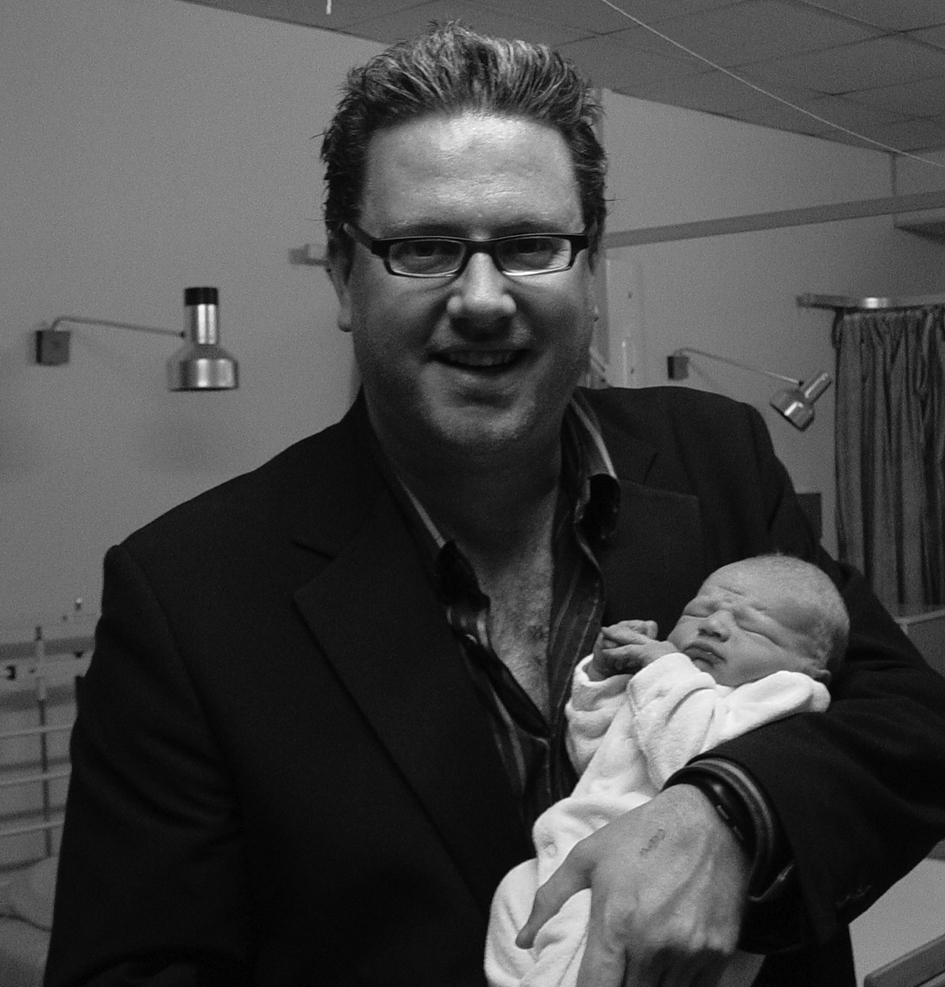22/12/14 How fathers’ brains adapt to a newborn
They develop extra grey matter in areas linked to emotional needs and multi-tasking / Changes in new fathers’ brains is the same as those in mothers / New research suggests men take to parenthood as well as women / Fathers develop extra ‘grey matter’ in brain, linked to emotional attachment / However men’s decision making gets worse after they become fathers
Modern men are increasingly involved in bringing up their children – and research suggests they are just as suited to the task as women. Physical changes in new fathers’ brains as they spend time with their babies mirror those in mothers, scientists have found. A study has shed fresh light on how both parents adapt to the joys and strains of a new addition to the household. The research suggests that men who help look after their newborns take to the role as well as women do.
Physical changes in new fathers’ brains as they spend time with their babies mirror those in mothers, scientists have found. Hands-on fathers develop extra ‘grey matter’ in areas of the brain linked to emotional attachment, detecting babies’ needs, and improved multi-tasking. But unlike in mothers, parts of the male brain associated with making decisions and memory retrieval were found to become less active following the arrival of a baby.
The scientists said the findings could help identify which regions of the brain are important for early bonding between fathers and their children, which has a lasting positive effect on youngsters. The study, published in the journal Social Neuroscience, is the first to look at physical changes in fathers’ brains in the months after the birth of their child.
Researchers at Yale University in the U.S. used an MRI scanner to observe what was going on inside the heads of 16 university-educated professionals. The new fathers were first examined between two and four weeks after the birth of their child, and then again two to three months later. By the time of the second scan, there had been an expansion of grey matter in areas of the brain known as the striatum, amygdala and hypothalamus.
New research suggests that men who help look after their newborns take to the role as well as women do. These regions have been found to be important for reacting to babies’ cries and other actions, and for emotional bonding. There was also growth in the men’s lateral prefrontal cortex, which is associated with complicated decision-making. But at the same time there was a shrinking in grey matter in other parts of the new fathers’ brains.
This could suggest that they were shifting mental resources to areas more directly related to looking after an infant. The study concludes: ‘These early father-infant interactions and emotional bonding become the basis of the father-infant attachment, which has a long-lasting impact on cognitive functions and social attachment for offspring.
‘The findings may thus lead to the identification of specific brain regions of potential importance for early father-infant attachment.’ Psychology professor Ruth Feldman from Bar-Ilan University in Tel Aviv, who was involved in the research, said more work was needed. ‘It was already known that women’s brains develop the greatest number of new connections after childbirth,’ she told The Sunday Times.
‘We have now shown that fathers’ brains are sensitive to the experience of child-caring in those that are actively involved, but we don’t yet know what happens longer term.’ A previous study found that men who are the primary carers for a child become emotionally responsive to their cries and body language just like women. Researchers discovered that the brains of gay fathers who look after babies show heightened activity in the same areas that are stimulated in new mothers.
Pic: Fathers4Justice founder Matt O’Connor with his son Archie on the day he was born.
Read more: http://www.dailymail.co.uk/news/article-2882984/How-fathers-brains-adapt-newborn-develop-extra-grey-matter-areas-linked-emotional-needs-multi-tasking.html#ixzz3MbAmgqOD
Follow us: @MailOnline on Twitter | DailyMail on Facebook



